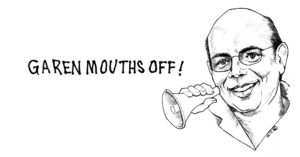 Last week I had the chance to hear and chat with Ara Sarafian of the Gomidas Institute (GI). For full disclosure—I’ve been assisting in doing some fundraising for GI’s publications.
Last week I had the chance to hear and chat with Ara Sarafian of the Gomidas Institute (GI). For full disclosure—I’ve been assisting in doing some fundraising for GI’s publications.
Some of the points Ara brought up, plus observations made by his fellow panelists at the West Coast Diocese presentation of GI’s latest publication “Armenians in Ottoman Turkey, 1914: A Geographic and Demographic Gazetteer” by Sarkis Karayan, M.D. really got me thinking about archives and academics in an Armenian context.
Some four decades ago, it was all the rage to establish chairs of Armenian studies at various universities. Then, that drive seemed to falter with at least one chair completely lost. Interest among our community members seemed to peter out, or at least wane significantly. Yet the Turkish government, and later that of Azerbaijan, continued their efforts. Here, I do not want to undervalue the work in academia that has been done by some of our very dedicated compatriots, since they have been persistent and dedicated in their endeavors. Another measure of this lack of interest is the irregular publication of Armenian scholarly journals (the one I’m most familiar with is the “Armenian Review”).
But the rest of us have not had the world of academia on our radar screen for quite some time. That’s not only unfortunate, but dangerous as well. Turkey has been consistent and persistent in seeking academic legitimacy for its “creative” version of history. This doesn’t just apply to the Armenian Genocide. Rather, it’s an ongoing effort to whitewash its murderous history, both Ottoman and Republic. It’s not as though centuries of state policy changed overnight. Plus, many of the “Young Turk” leaders transitioned to positions of power in Ataturk’s “republic” with the wealth stolen from Armenians to empower them. All of this will come out eventually, unless, Turkey hopes, it can distort history enough to avoid answering for its crimes until too much time has gone by to matter.
This, Turkey achieves, by “buying” supportive academics. Nothing too crass, it just selectively funds and gives data/archival access to those professors, researchers, think tanks, university chairs, etc. that are positively inclined towards Ankara. Of course most of the academics who accept this sort of money know what kind of devil’s bargain they’ve struck. But… it’s a living.
Not only does this constant drive by Turkey work to create a positive image for itself, but it also tends to exclude the possibility of using Armenian primary sources. You might be surprised, but these do exist, in substantial quantities no less, and of high quality. This is one of the realizations I came to last week. The publications of the compatriotic unions describing life in their respective settlements, villages, towns, cities, and regions are one category that most of us know about, but under-appreciate. Then there are unpublished memoirs, archives (some open and some not yet, or only partially, so), and eye-witness testimonies. There are the oral histories gathered from survivors.
All of this, of course, points to another gap, this one in language. How can scholars be thorough in their research if they do not know Armenian? That excludes all these sources as raw materials for them. Of course, in fairness, the same can be said of Ottoman Turkish and the largely unopened, or only preferentially opened archives in Turkey. This matter of knowing Armenian was raised at a panel discussion that followed Ara’s presentation at the Western U.S. diocese.
Why is any of this relevant to our lives? Public policy and education follow what is produced by academia, even in this age of acting based on feelings, fake news, and fads. Ultimately, what kids learn and what government officials do is at the very least impacted or tempered, and usually largely determined by information, processed data, produced by experts in various fields. If it’s Turkish generated/influenced information, then policy in the U.S. and everywhere else will be detrimental not just to Armenians, but the entire Near East and Europe.
So it’s time to put yet another crowbar in our wallets and pry loose some money to support academic research and the publications that gird it.


Be the first to comment